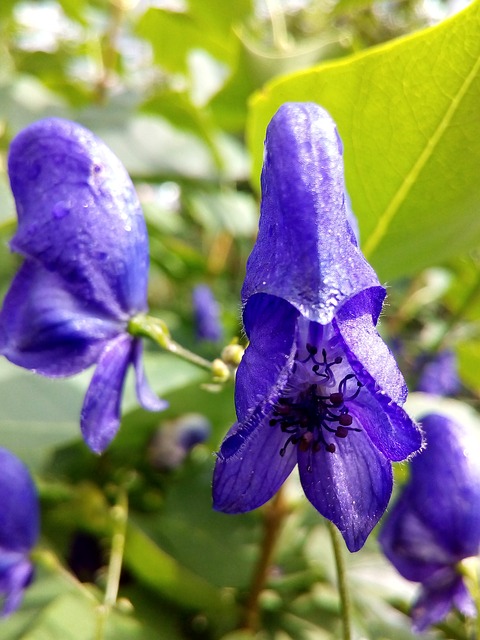Skullcap Herb

Also known as
Scutellaria lateriflora, Scutellaria, Scullcap, Scute, Blue Skullcap, Mad-Dog Skullcap, and Madweed.
Introduction
Skullcap is an herbaceous perennial mint with ridged leaves and tiny blue flowers, growing 1 to 4 feet (25 cm to 1 m) high. Various species of skullcap are important in Traditional Chinese Medicine as herbs that clear heat and dry dampness. The use of herb dates back at least two thousand years. Traditional Chinese medicine teaches that skullcap is most useful for "draining fire" from the "upper burner," for patterns of symptoms including high fever, irritability, thick mucus, or hot sores and swelling. The herb is used to "dry dampness" from the stomach or intestines, treating any kind of digestive upset that stifling the urge to drink fluids or causes inflammation of the urinary tract. Skullcap also treats the symptoms of emotional excess "rising" in the body to cause blushing, flushing, irritability, or headache.
Constituents
Baicalein, baicalin, wogonin, wogonoside, neobaicalein, roxylin aglucurenoide, camphesterol, beta-sitosterol, and benzoic acid.
Parts Used
The above-ground parts of the plant, dried.
Typical Preparations
Traditionally used as a tea or tincture; can be used in capsule form. The tea should be drunk hot. Combined with heal-all (prunella) for treating nervous conditions, peony for treating tension in the abdomen during infection. Traditional Chinese Medicine teaches that skullcap should be "fried" (browned in a pan without oil) for use in stopping bleeding.
Summary
Over 100 scientific studies confirm skullcap's antibacterial effect. The species of skullcap inhibits the growth of Staphylococcus aureus, Streptococcus pneumoniae, and Pseudomonas aeruginosa, among others. Skullcap may be useful when there is antibiotic resistance. Bleary effect. Tinctures (but not teas) increase flow of bile and lower cholesterol. Gastrointestinal effects. Teas and tinctures slow intestinal movement. Hypotensive effect. Teas, tincture, and alcohol extracts are known lower blood pressure in dogs, cats, rabbits, and humans. The herb lowers blood pressure by dilating blood vessels, potentially lowering risk of heart attack and stroke. Immunomodulatory effect. Skullcap contains compounds that inhibit the release of enzymes by mast cells, effectively acting as an antihistamine. Temperature regulatory effects. As far back 1935, scientists have confirmed that skullcap can lower fevers.
(From www.altnature.com): "Scientific studies are proving this to be a valuable plant in many areas for mental disorders. Skullcap is used in the treatment of a wide range of nervous conditions including epilepsy, insomnia, hysteria, anxiety, delerium tremens, withdrawal from barbiturates and tranquilisers. A medicinal infusion of the plant is used to promote menstruation, it should not be given to pregnant women since it can induce a miscarriage, the infusion is also used in the treatment of throat infections. The infusion is given for nervous headaches, neuralgia and in headache arising from incessant coughing, pain, and inducing sleep when necessary, without any unpleasant symptoms following. Skullcap is currently being used as an alternative medicine to treat ADD and a number of nerve disorders."
Precautions
None found.
PURCHASE SKULLCAP HERB EXTRACT
For educational purposes only. This information has not been evaluated by the Food and Drug Administration.
This information is not intended to diagnose, treat, cure, or prevent any disease.
Unless otherwise stated, this information courtesy of MOUNTAIN ROSE HERBS, with full, written permission for reuse. For further traditional information concerning SKULLCAP, please visit this excellent resource fromBotanical.com. Used with full, written permission.







